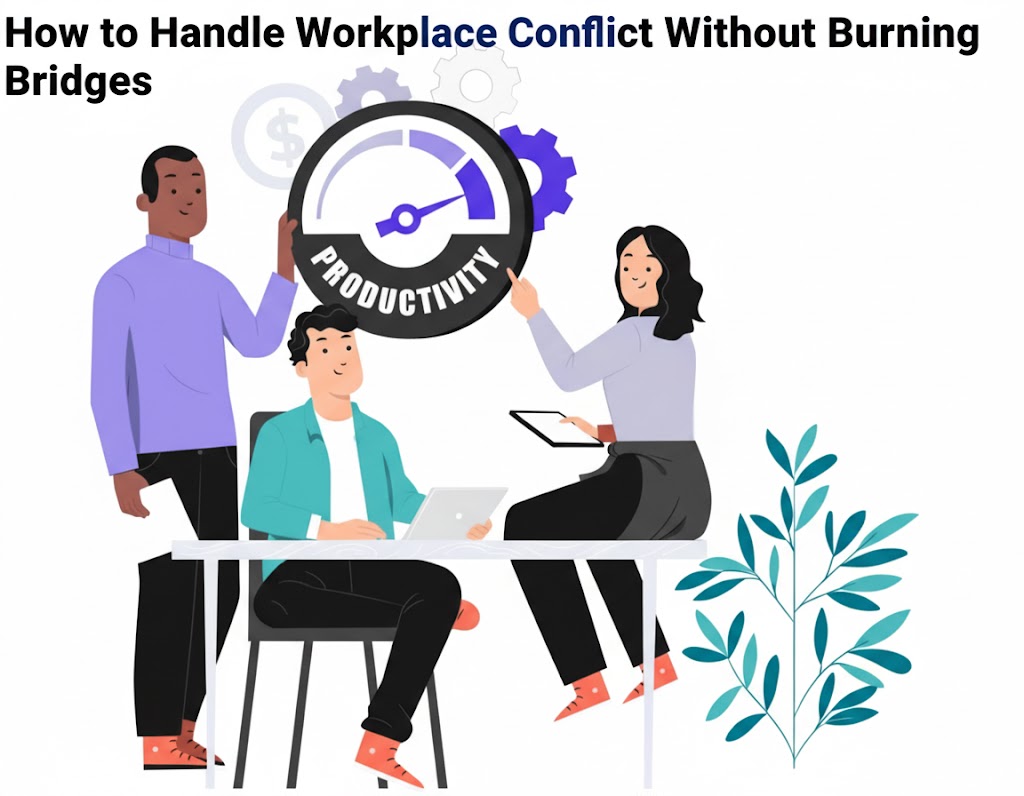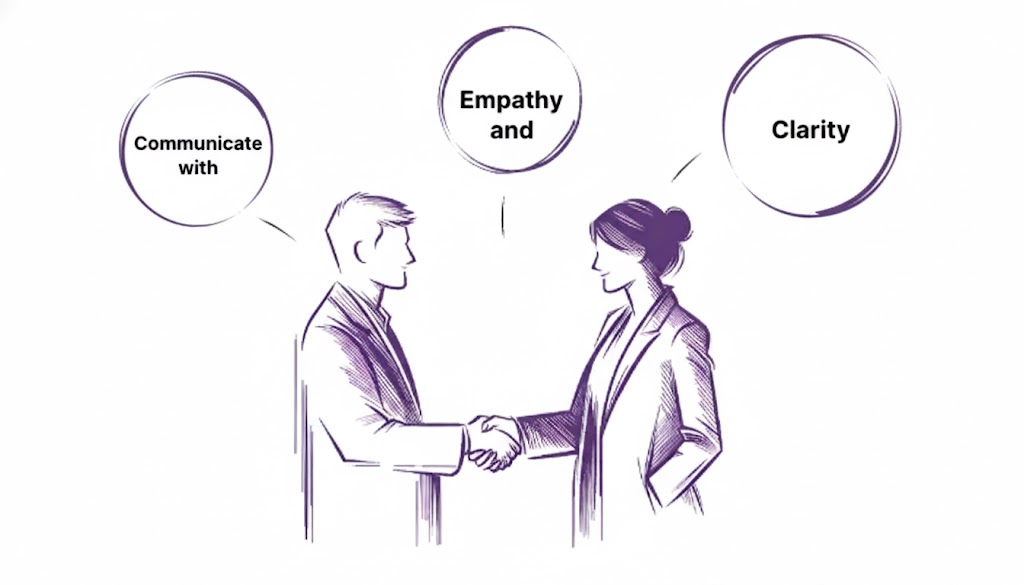Blog
How to Handle Workplace Conflict Without Burning Bridges

Workplace conflict is inevitable. Whether it Is a disagreement over project direction, personality clashes or misunderstandings caused by poor communication, tensions can arise even in the most harmonious teams. But while conflict itself isn’t always bad it can spark innovation, encourage diverse thinking and lead to better decisions how you handle it makes all the difference. Navigating workplace disputes with professionalism and empathy can help you preserve relationships, maintain your reputation and even emerge as a stronger team player.
Recognise the Source of the Conflict

Before reacting, take a step back to understand what’s really driving the issue. Many conflicts stem from miscommunication rather than malice.
Someone’s short email may not mean they are angry it might just mean they’re busy.
Similarly, clashing work styles, unclear expectations or competing priorities can cause unnecessary tension.
Stay Professional Even When It Feels Personal
It’s easy to let emotions take over in the heat of the moment, especially when you feel unfairly criticised or misunderstood. However, losing your composure or retaliating can damage relationships and your reputation. Keep communication factual and solution oriented.
- In more serious cases such as when ongoing conflict creates a hostile environment or impacts your wellbeing it is wise to document the situation and discuss it with HR.
- Unresolved, severe conflicts can sometimes lead to claims of constructive dismissal, so early intervention is always better than escalation.
Communicate with Empathy and Clarity

Effective communication is the cornerstone of conflict resolution. The goal isn’t to “win” the argument but to understand the other person’s perspective and find a workable compromise.
- Listen actively. Let the other person speak without interrupting. Often, people just want to feel heard.
- Ask clarifying questions. Say, “Can you help me understand what you meant by that” instead of assuming intent.
- Use “I” statements. This helps express your feelings without sounding accusatory. “I felt overlooked in the meeting” is more constructive than “You ignored me.”
- Keep body language open. Avoid crossing your arms, rolling your eyes or using a defensive tone all of which can make the situation worse.
Focus on Solutions, Not Blame
Once the issue is out in the open, it is tempting to dwell on who caused the problem. But that mindset only keeps you stuck. Instead, focus on finding solutions and moving forward.
If you are part of a team conflict, suggest clear next steps defining responsibilities, setting boundaries or scheduling regular check ins to prevent misunderstandings.
By staying proactive and practical, you will show leadership qualities even without a formal title.
Know When to Involve a Mediator
Some conflicts can’t be resolved one on one, especially if emotions are running high or the dispute involves power dynamics (between an employee and their manager). In such cases, involving a neutral third party like an HR representative or workplace mediator can help.
Mediators can reframe discussions, ensure fairness and guide both sides toward compromise. They also help depersonalize the conflict turning it from “you vs. me” into “us vs. the problem.”
Manage Conflict Early Don’t Let It Fester
Unaddressed tension tends to grow. What starts as a small disagreement about workload can quickly become resentment or disengagement if left unresolved.
That is why early, calm conversations are so powerful.
When you sense a problem, address it before it spirals out of control. For instance, if a colleague repeatedly interrupts you in meetings, you might say privately, “I have noticed it’s been difficult for me to finish my points during discussions. Could we try to make sure everyone has a turn to speak”
Protect Your Mental Health
Workplace conflict can be emotionally draining, even when handled well. Do not underestimate the toll it can take on your mood, focus and motivation. If a dispute starts affecting your sleep, anxiety levels, or confidence, take steps to protect your wellbeing.
- Take short breaks during the day to reset.
- Talk to a trusted friend or mentor outside of work for perspective.
- Document interactions if things feel serious, so you have clarity about events.
- Set boundaries you can be cooperative without being available 24/7 or accepting unfair treatment.
If you find that a workplace consistently fosters conflict or negativity, it might be time to consider whether it is still the right environment for your growth. Sometimes, leaving gracefully is the healthiest choice.
Don’t Let Ego Get in the Way
Pride often makes conflict worse. It is easy to dig in and defend your position but this can prevent meaningful resolution. Ask yourself “Do I want to be right or do I want to make things better”
Letting go of ego does not mean giving in it means prioritizing long-term relationships over short term victories. Apologizing when you have contributed to the problem can go a long way, even if you feel only partly at fault.
